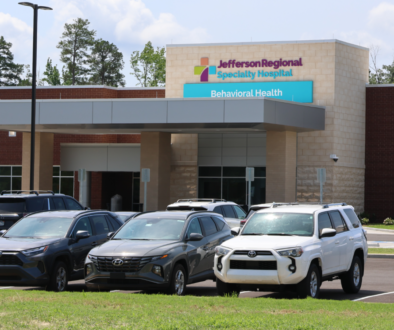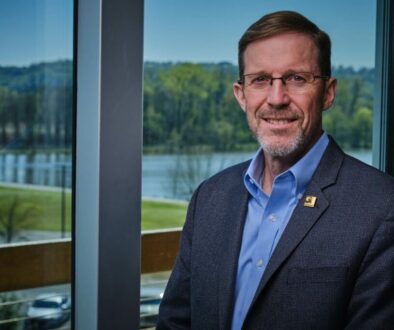Arkansas Employers Say Attitude Matters: Labor Issues More Complex Than Ever
If you take the time to go to any medium-sized community in Arkansas and tour local manufacturing facilities, at some point you will inevitably say, “I had no idea that was made here.”
On a recent humid day in Russellville, a manufacturing conference at Arkansas Tech University featured six medium to large employers. They make wet wipes, frozen dinners, coffee filters, aluminum landing strips for military aircraft, the landing surface on aircraft carriers, precision parts for satellites, parts for Tesla cars, cardboard boxes, and the inner tubes for wheels on the Blackhawk Helicopter.
The companies turn out a wide array of products, but they all have the same labor issues. Recruiting and retaining workers to keep assembly lines running is getting more complex and more expensive. These HR leaders operate on the simple premise that they don’t expect an applicant to have much training or background on day one.
If an applicant has the desire to work, the company will offer a wide array of development opportunities. These companies need and want people to move to higher salary levels soon after they are hired. A state that once talked a lot about a non-union workforce as an asset now often leads any conversation with the need for an available and trained workforce to attract new business.
Each company says the most important thing they want in a new employee is a great attitude, the ability to show up to work on time, and pass a drug test given to new hires. Attitude is everything for these companies. One plant manager says, “If someone has a toxic attitude, we really wish they would just tell us that up front and move along.”
Most Arkansas employers believe a diligent worker with a good attitude can quickly move through the ranks increasing their responsibility and the size of their paycheck. One executive says simply, “We are hungry for people. We don’t look for specific qualifications in new hires. We want motivated people with a willingness to learn.”
When asked about the things they notice on an application or resume, one executive said, “We notice when someone applies who has had five jobs in five years, it’s not a great indicator. We notice when a recent high school graduate has no real work experience during their teen years. We notice when you struggle to read, we can help you with that, but you need to be able to show up to work on time.”

The good news is that anyone with the right attitude and the desire to work can find a job today in a manufacturing facility in Russellville. But those opportunities will shrink in the years ahead. Covid abruptly forced manufacturers to learn how to get the work done with fewer employees. Technology and automation are cheaper than they were ten years ago, and employers are rapidly working to automate everything they can.
One business leader told the audience, “Manual labor jobs that require no experience will go away, so you will have to have a specialty or some sort of certification to be in the future workforce.”
The real opportunity in the years ahead will be for workers who have specialized training or certifications in areas like plumbing, electricity, or welding. Companies are looking for people with specialties. An HVAC maintenance person has huge value to a facility with massive refrigeration units vital to chilling or freezing food. But HVAC repair experts remain exceptionally hard to find. When they are hired, they can quickly make $70,000 annually.
One plant manager says, “Refrigeration technicians are for whatever reason a dying breed. There is just a lack of interest in this critical position. Maybe people want something a little more glamourous, or maybe they want to do work they think they will like more. But we always need technical skills.”
On this day, the audience listening to the industry leaders is composed of teachers and school district administrators. The idea of the meeting is to give the educators a better understanding of what employers look for in students who apply for jobs right after high school.
A teacher stands to ask a question and says, “We tell our kids they need an understanding of Excel and PowerPoint and Microsoft Word. Do you think that’s true?” One executive pauses for a moment before answering, “Well, if you were coming into our accounting office, we would certainly expect you to understand Excel. But if you are applying for a starting-level job on the floor, I don’t think those are skills that would matter much.”
It’s an interesting moment that underlines one of Arkansas’ profound economic and hiring issues. The disconnect between what public schools and community colleges are teaching, and what will really help some young people find a better job and a better life.
At some point during the 90-minute session, every one of the six executives at the head table said some variation of this…. “We spent decades telling every kid to get a four-year degree. No one really said that manufacturing is a good career choice or that maintenance workers can earn $70,000 a year. There are countless people who could have made a great living in a manufacturing plant, but they were told to go to college. They never made much money, they took on education debt, and now they can’t retire.”

Arkansas State Chamber President Randy Zook has for years been saying what the Russellville business community is pointing out, “If a new worker shows up and acts interested, the employers will take it from there. Employers are seeking attitude and durable skills like how to think creatively and the ability to read and understand instructions. The real need out there is for engaged entry-level workers who can learn and grow on the job.”
Outside the large dining hall where the meeting is taking place, Arkansas Tech summer students can be seen walking in shorts with book bags draped over their shoulders. Chances are good that each of these students is giving some degree of thought to the link between what they learn here and future earning potential.
This student body is 95% in-state students and the majority are accessing Pell Grants to get a degree. But many don’t make it to graduation day; 25% drop out between the spring of freshman year and the start of sophomore year. It’s safe to say that making $70,000 annually as an HVAC technician would be a game changer for most of these young people and their families.
A major challenge in Arkansas remains what it has been for years…how do we do a better job telling people about the income potential in career paths they have never been urged to think much about?
The Arkansas State Chamber of Commerce for more than six years has been building the Be Pro Be Proud program that collaborates with high schools to show thousands of students manufacturing career options. The program pulls together employers and students for an expedited interview process and works to create measurable data showing the number of students who end up employed because of this work.
Be Pro Be Proud Executive Director Andrew Parker relentlessly manages the logistics of staging events at hundreds of high schools. Parker says, “We are a long way from where we were six years ago. We are different from many workforce development programs in that we are doing extremely specific things to help young people find a career path. Pulling schools, students, and employers into the same discussion matters. Most programs are not as hands-on as Be Pro Be Proud is.”

Parker recognizes that young people in any state have different levels of resources and support at home. After the event in Russellville, he said, “Part of any strategy to create new jobs, and fill existing jobs, has to be showing people the opportunities that are out there. We are not only talking to high school students, but we are working to communicate with parents.”
In Arkansas it’s not just the manufacturing community dealing with hiring and retention issues. Every company that belongs to Arkansas Good Roads is facing some variation of the same labor issues the companies in Russellville are dealing with. Large engineering firms start trying to hire bright young engineers during their junior year in college. The trucking industry is talking about the fact you must be 21 to drive a large truck. Road contractors must adjust bids on big projects as the cost of labor is a daily commodity discussion now. The highway police and state police who make roads safe are facing significant shortages in the officer ranks.
Many business leaders nationwide are still not entirely sure why labor became harder to find after Covid. There are many theories, but no single answer. We shifted more than ever to being a work-from-home society, but you can’t work from home and assemble the aluminum pieces going into an aircraft carrier or a Tesla. You can’t deliver millions of tons of Tyson Chicken from home. Walmart home delivery teams can’t hand you milk and eggs from a home office.
“We are a long way from where we were six years ago. We are different from many workforce development programs in that we are doing extremely specific things to help young people find a career path.” — Be Pro Be Proud Executive Director Andrew Parker
Zook has told multiple governors, hundreds of legislators, and dozens of Rotary Clubs that Arkansas needs to be much more focused on how schools prepare students for the day after graduation. He says states also need to change how they think, “Virginia just did a detailed review and analysis of all the state job openings they have posted. They found that 60% of the jobs currently ask for a four-year degree as a prerequisite to hiring when the degree really isn’t needed at all.”
For the first time ever, Arkansas Governor Sarah Huckabee Sanders has appointed one person to coordinate the Arkansas workforce development efforts. Previously, multiple state agencies had a role in this work, but a new type of coordination across the public and private sectors will hopefully make it easier for job seekers to connect with large and small employers. Chief Workforce Officer Mike Rogers spent years in the private sector at Tyson Foods. He is passionate and dynamic when he speaks to teenagers about controlling their own destiny and finding a career that can support a family and give them a better life.
The hard reality today is that the challenges and workforce dynamics Russellville is facing are no different than thousands of other similar communities across the state and nation. The people and companies that thrive in the years ahead will be in communities that embrace the fact that what has worked in the past is not the path to the future.


